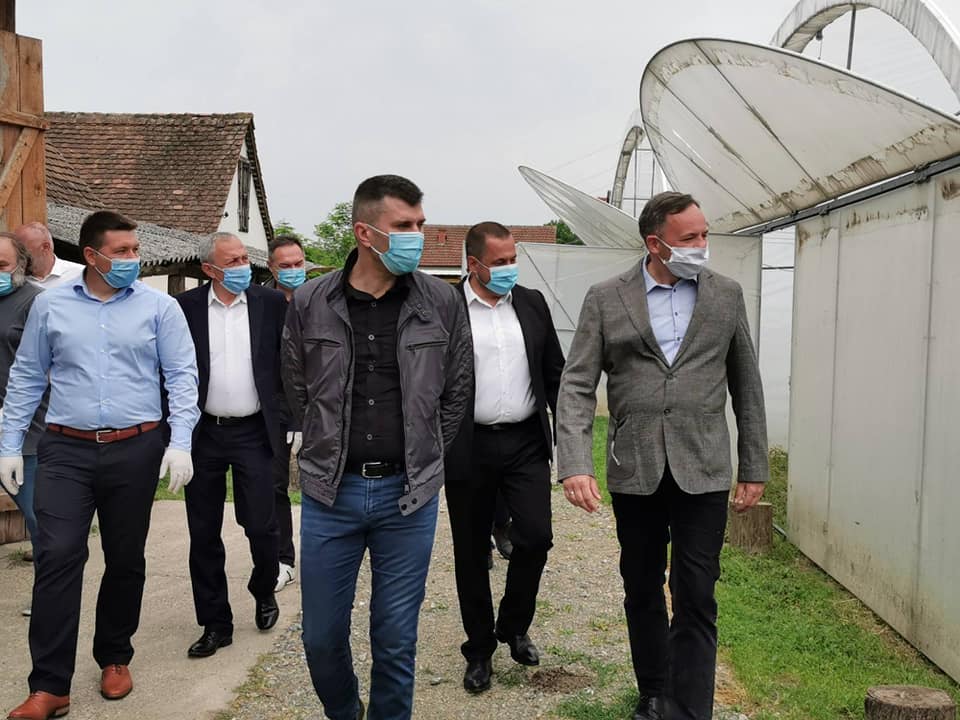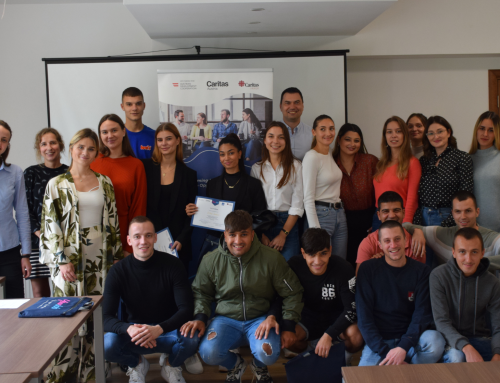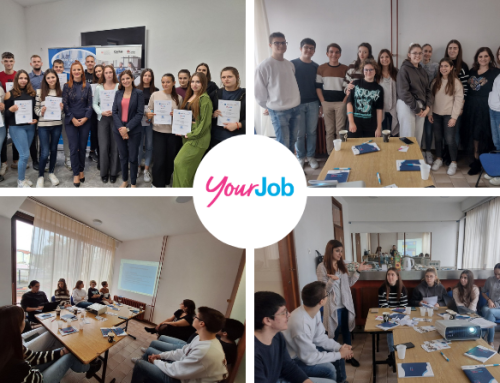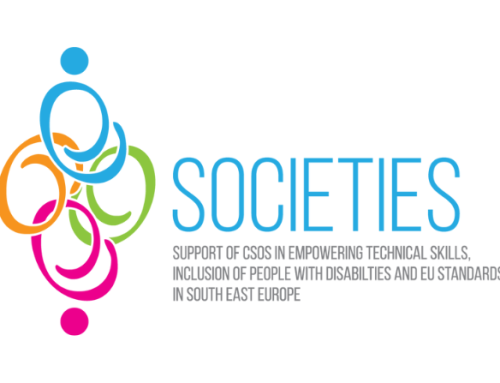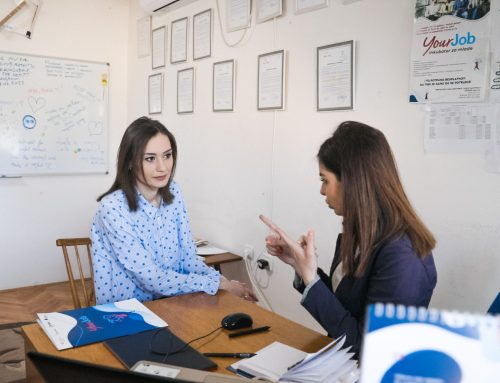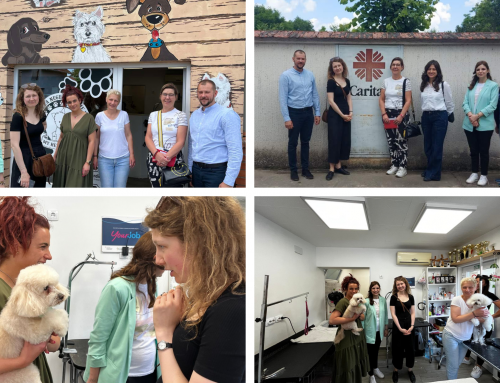The Minister of Labor, Employment, Veterans and Social Affairs, Mr. Zoran Djordjevic, visited the property of Caritas Sabac in Bogatic on May 17, where he had the opportunity to get informed with the social protection services provided by Caritas Sabac – Daily center, Assisted living and Home care service, but also with the work of “Sustainable Development Courtyard”, company for professional rehabilitation of persons with disabilities establised by Caritas.
“The general idea is for each municipality, in accordance with its capabilities and needs, to do something similar to this. This is perhaps the most beautiful thing I have seen in Serbia and a real example of what a institution like this should look like. The impression is that the beneficiaries here are really satisfied because thay have someone to take care of them. I think everyone in Serbia should come here and see how Caritas has shown that an ordinary rural household can be turned into something that, on the one hand, provides a place for living or spending time to these people here, and on the other hand, it can also employ them, make them feel useful and happy. I am glad to be here today, this is a new experience for me and definitely something I will share with my associates. I believe that together we will succeed in transforming our social protection “, Minister Djordjevic did not hide his enthusiasm.
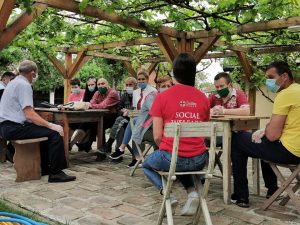
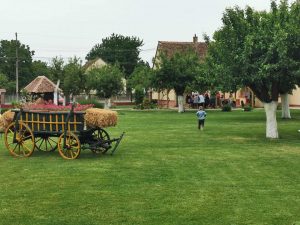
„We are developing a model for employment of socially vulnerable groups, especially people with disabilities, and we have registered a company for professional rehabilitation and employment “Courtyard of Sustainable Development”, because we think that the combination of social protection, catering, agriculture … can be really good assembly, where people who are on the margins of society can be fully included “, said the director of Caritas Sabac, Mr. Miroljub Nikolic.
“In this way, we are fighting against deinstitutionalization. We want to empower those people, help them get some new skills, develope work habits, so that they can live independently in their homes, with their families, be part of community, without being expelled and taken to some psychiatric institutions” We try to, through greenhouses, agriculture, cuisine, activities of everyday living here on the property, point out that these people are like everyone else, that there is no need to run away from them, nor to close them. That is why we promote this kind of openness towards the community “, stated Andrijana Nikolić, a professional worker in the Daily Center.



